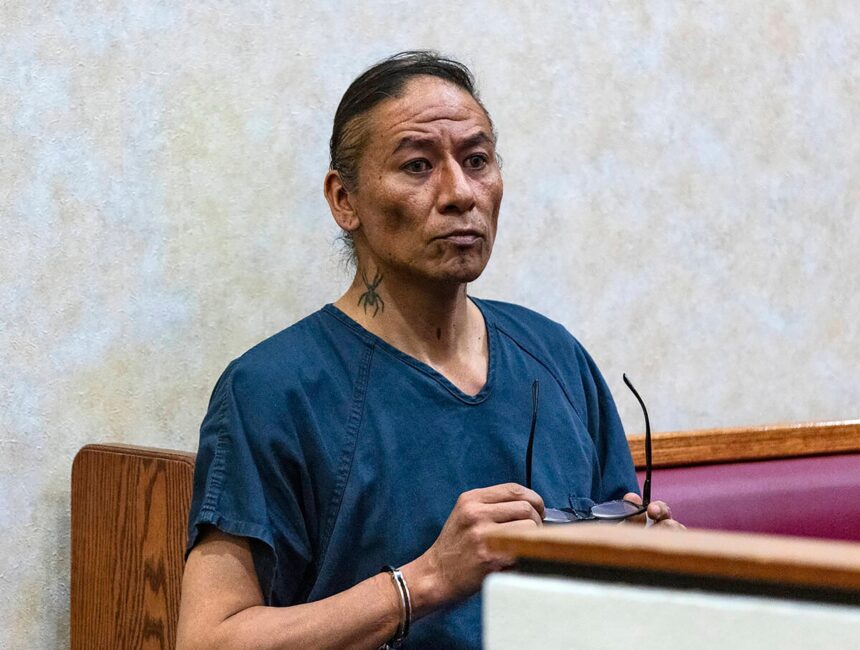Trial Postponed in Nathan Chasing Horse Sexual Assault Case Amid Ongoing Legal Preparations
The jury trial for Nathan Chasing Horse, who faces multiple sexual assault charges, has been officially deferred by the presiding judge. This postponement arises from the need to address several procedural complexities and to allow both defense and prosecution additional time to prepare. Originally slated as a critical legal proceeding, the trial’s delay underscores the court’s commitment to ensuring all parties are fully equipped to pursue justice effectively. The case has attracted widespread public scrutiny due to the gravity of the accusations involved, intensifying calls for transparency and accountability.
Factors Contributing to the Trial Delay
The judge’s decision to reschedule the trial was influenced by multiple key considerations,including:
- Ongoing forensic analyses that remain incomplete
- Scheduling conflicts affecting the availability of essential witnesses and expert consultants
- Pending legal motions from both defense and prosecution that could impact evidence admissibility
- Ensuring strict adherence to procedural and evidentiary standards to uphold trial integrity
| Component | Current Status | Effect on Trial Timeline |
|---|---|---|
| Forensic Evidence | Still Under Review | Postpones final evaluation of critical proof |
| Witness Scheduling | Conflicting Commitments | Necessitates adjustment of trial dates |
| Legal Filings | Awaiting Judicial Ruling | May influence what evidence is presented |
Legal Community Discusses the Ramifications of Trial Rescheduling
The postponement has ignited extensive discussion among legal professionals,who emphasize the nuanced consequences such delays can have on case outcomes. Some experts suggest that the defense benefits from extra time to strengthen their arguments and scrutinize evidence more thoroughly. Conversely, prosecutors face challenges as witness recollections may diminish over time, perhaps weakening testimonies. A seasoned legal commentator remarked, “While rescheduling trials is a routine judicial tool, each delay must be carefully balanced against its impact on fairness and the pursuit of justice.”
- Defense Advantages: Extended preparation period, enhanced ability to contest evidence.
- Prosecution Challenges: Risk of fading witness memory, possible shifts in jury attitudes.
- Judicial Priorities: Balancing efficiency with safeguarding the rights of all parties.
| Consideration | Possible Impact | Expert Commentary |
|---|---|---|
| Length of Delay | May affect availability and reliability of evidence | “Extended postponements risk eroding witness testimony quality.” |
| Media Influence | Prolonged coverage could bias jury perceptions | “Pre-trial publicity can unintentionally shape juror opinions.” |
| Case Complexity | Additional time often necessary for comprehensive case review | “Complex legal matters benefit from strategic scheduling flexibility.” |
Public Response and Advocacy Efforts Following Trial Delay
The community’s reaction to the trial postponement has been immediate and impassioned, reflecting a strong demand for justice and transparency. Survivors’ advocates and local leaders have voiced frustration over the delay, underscoring the urgency of addressing survivors’ needs while respecting due process.Social media platforms have become hubs for activism, with hashtags like #JusticeForSurvivors gaining traction as supporters rally for a prompt and equitable resolution.
In light of the heightened public engagement, several grassroots organizations have initiated events to sustain awareness and apply pressure on the judicial system. Key initiatives launched since the trial’s deferment include:
| Initiative | Purpose | Date |
|---|---|---|
| Voices of Healing Forum | Monthly gatherings for survivors to share stories and find mutual support. | June 15, 2024 |
| Justice Now Rally | Public demonstration demanding expedited trial proceedings. | June 20, 2024 |
| Legal Rights Workshops | Educational sessions on sexual assault laws and survivors’ rights. | Ongoing |
Guidance for Supporting Survivors During Lengthy Legal Proceedings
Survivors enduring protracted legal processes, such as the delayed trial of Nathan Chasing Horse, often face notable emotional and psychological challenges.It is vital for support systems to offer consistent empathy and validate survivors’ experiences. Advocates and caregivers should encourage access to trauma-informed mental health services, including peer-led support groups, which empower survivors to reclaim agency in their healing journeys.
Maintaining open communication about court developments can provide survivors with a sense of stability amid uncertainty.The following strategies can assist those supporting survivors through extended judicial proceedings:
- Consistent Check-Ins: Offer compassionate listening without pressure or judgment.
- Clear Updates: Help survivors understand the legal timeline and implications of delays.
- Encouragement of Self-Care: Promote routines that nurture both physical and emotional health.
- Community Connection: Facilitate links to advocacy groups and survivor networks for ongoing support.
| Support Approach | Positive Outcomes |
|---|---|
| Trauma-Informed Counseling | Alleviates anxiety and strengthens resilience |
| Peer Support Networks | Encourages shared understanding and mutual encouragement |
| Legal Education | Enhances empowerment and preparedness |
| Promotion of Self-Care | Improves overall well-being and coping skills |
Conclusion: Ongoing Developments in the Nathan Chasing Horse Case
The postponement of Nathan Chasing Horse’s jury trial represents a significant update in a case that continues to captivate public attention. As legal teams refine their strategies and the court ensures procedural fairness,the community remains vigilant in demanding justice. Further announcements regarding the trial schedule and case progress will be shared as they become available.
